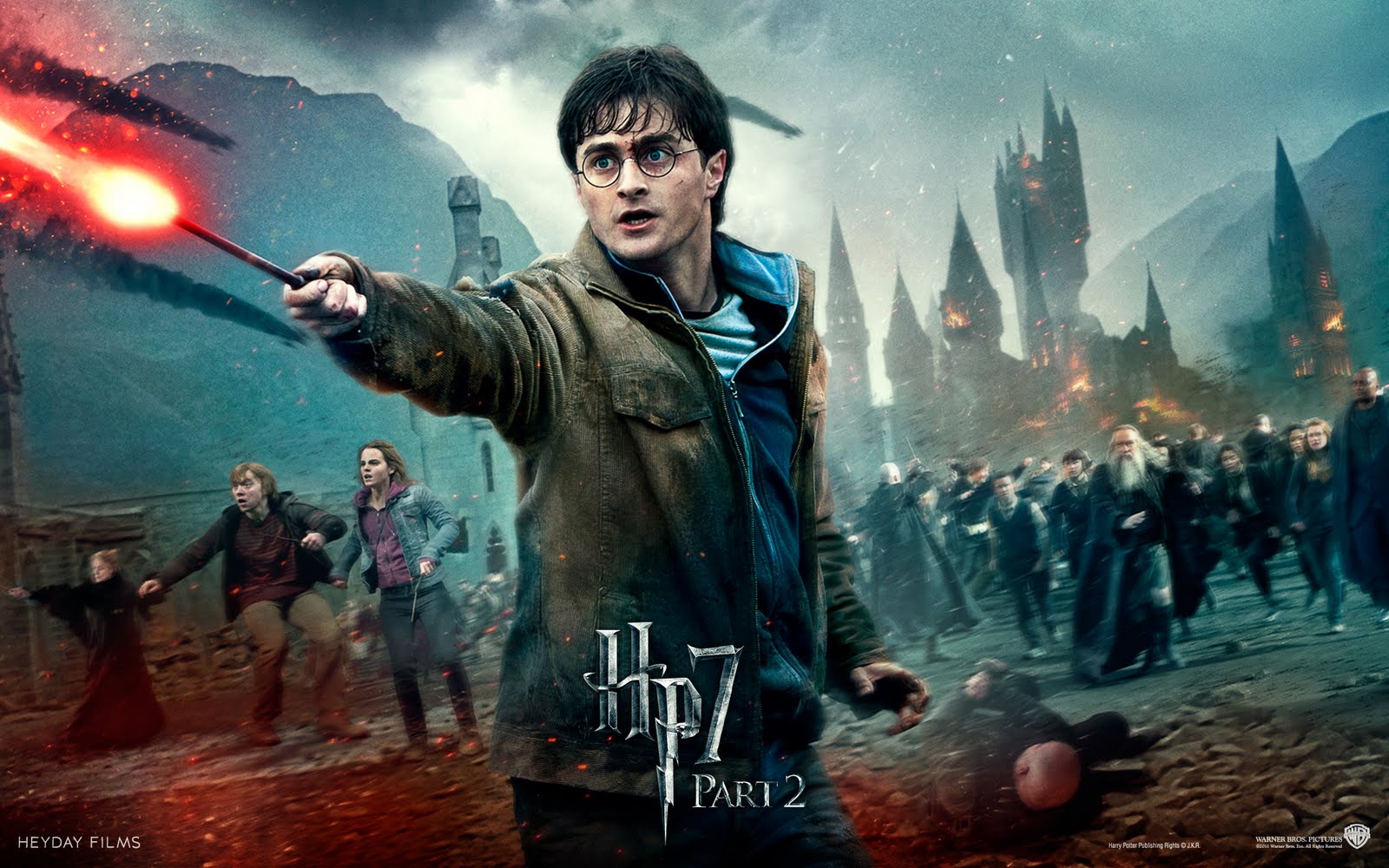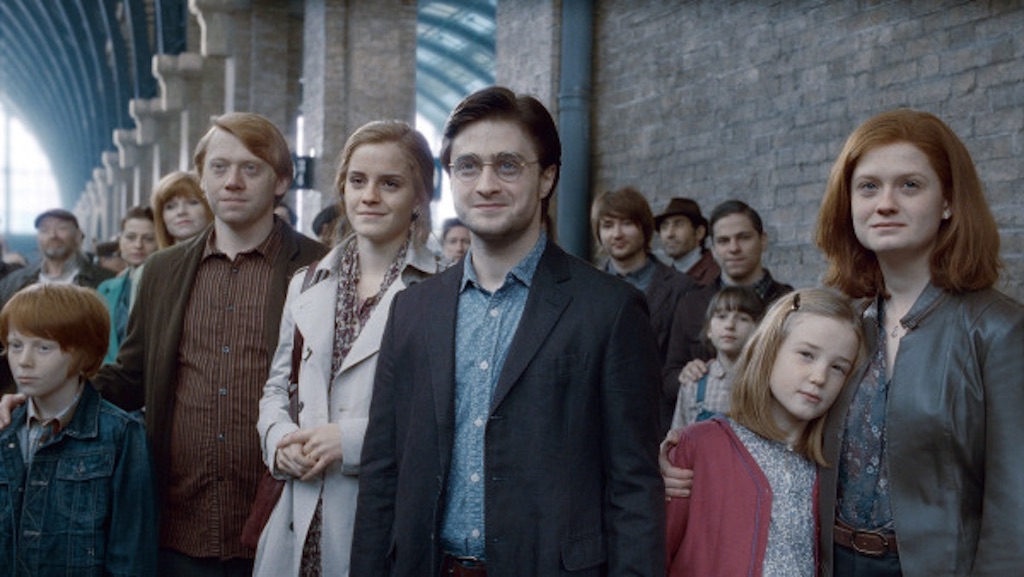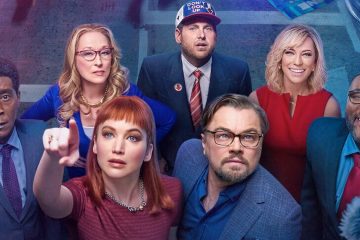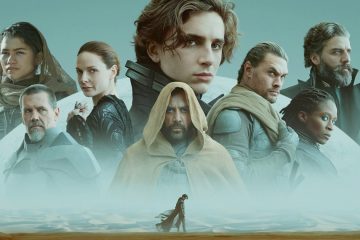I may have been wrong.
See, back in 2005, I gave up on Harry Potter.
I’d never read the books, so giving up on the movies was easy. And by Harry Potter and the Goblet of Fire, I’d had my fill of wooden child actors, creaky plots and my friends insisting that “the books were so much better.” I just chalked the whole Harry Potter phenomenon up as another pop culture movement that I’d willingly allow to pass me by, like Pokemon or POGs.
And last winter, when I saw building-sized advertisements for and the Deathly Hallows, Part 1, I thought to myself, “I guess that generation is getting ready for their epic to end.”
But then, when the final film hit theaters this past month, and I witnessed the sheer volume of people making their pilgrimage to pay Harry his last homage, I too felt obliged to see it on the big screen. The movie’s release was generating all the momentum and electricity of a cultural touchstone, and I didn’t want to have to try and recreate that potentially meaningful experience on a DVD someday, half-distracted by my dog licking himself on the sofa next to me.
So, on a half-price Monday, I went to the theater alone and I sat by myself.
And I cried.
Probably not at the same point you cried at, and probably not for the same reasons.
But mostly because, in defiance of my low expectations, author J. K. Rowling (and director David Yates) accomplished something I didn’t think they were capable of:
They told the story of us.

First Up, the Twist That No One Saw Coming
I’m not sure when it happened. I’m not sure how. I have no idea if it was a sudden change, or if it had been coalescing for the past half-decade, but it finally happened:
Daniel Radcliffe can act.
This is worth noting, because it was the bland performances of Radcliffe, Emma Watson and Rupert Grint that drove me away from Potter six years ago. It’s not entirely their fault; it’s hard to cast child actors at the age of ten and then cross your fingers that their talent will mature along with their hormones. By the fourth film, I was convinced that the trio had been unfortunately saddled with the responsibility of carrying a story that their meager talents wouldn’t be able to sustain.
But, as I said before, I may have been wrong.
Not about Watson and Grint, god bless them; they’re still as innocuous as ever.
But somewhere, while I wasn’t looking, Daniel Radcliffe became talented.
Maybe he sat down and watched Harry Potter and the Goblet of Fire one day and he said to himself, “What the hell am I doing?” And then maybe he got help, in the form of an acting coach, or a counselor, or a traumatic real-life event that gave him the grist necessary to convince an audience that he was physically present and conscious of horrible things.
Whatever caused it, the Daniel Radcliffe who kept my attention throughout this film has come a long way from the Daniel Radcliffe who made me quit the series six years earlier.
Well done, Mister Radcliffe. Seeing you mature into a capable actor must be as rewarding to me, the casual viewer, as reading about the maturation of Harry Potter himself was for the books’ original audience.
And that, fittingly, brings us to the story’s real surprise.
But First, the Part Where I Cried
(Because I know you’re wondering.)
It actually happened twice.
The second time was during the part of the movie I shouldn’t mention if you haven’t seen it, but it involves the answer to the question, “Doesn’t that seem kind of strange when you stop and think about it?”
The first time was when McGonagall led the school into battle against Voldemort by first unleashing the giant stone statues and imploring them to “do your duty and defend our school!”
Call it cheesy, call me sappy, but I’m a sucker for the underdog pulling out every stop in order to scrape out a win. And when that underdog is a 77 year-old actress who’s using every trick in the book to defend a fictional school where millions of kids have studied (on the page, at least) from ultimate destruction, and all she has to rely on for help are children, half-wits and a giant blue safety net, yeah, I’m going to allow myself to get a little misty-eyed at what that all means.
Because, really, that is what Harry Potter is all about.
Hot for Teacher?
Well, no, not that.
Yes, a recent Esquire column argued that our fascination with Harry Potter stems from our fascination with our teachers. And yes, since we’ve all had teachers, we’ve all shared the experience of wondering about their lives outside the classroom, and the occasionally heroic (but more often embarrassing) “real” lives they lead without our knowledge.
But that summary is a convenient, short-sighted cop-out that misses the real point:
Harry Potter isn’t about the teachers, the students or the battle between good and evil.
Harry Potter is about us.
And J. K. Rowling knows it, which is why she included a postscript that (brilliantly, in my opinion) undoes everything she’s created, on purpose.
J. K. Rowling’s One Final Twist
If you’ve never read the books or seen the movie, maybe you should stop reading here. Or maybe not, because maybe I’m about to shine a light on what all the books and the movies and the whole Harry Potter experience are truly about, regardless of everything that happens in-between.
See, in terms of innovative or authentic storytelling, I think we can all admit that Harry Potter and the Deathly Hallows, Part 2, does not break any new ground. In fact, it’s exactly the kind of by-the-numbers ending that I would expect from a by-the-numbers epic: the good guys do what good guys always have to do, the bad guys do more of the same, and in the end, someone wins.
And then, we fade to black, right?
Almost.
Because this story has an epilogue.
And yes, this epilogue gives us what an epilogue is supposed to give us: closure. But it also gives us something else, which is — in my opinion — Rowling’s final lesson in her 14 year-long curriculum with her readers: self-awareness.
The epilogue takes places 19 years after the rest of the story, as Harry, Ron, Hermione and the rest of the characters who’ve managed to survive are standing on a train platform, watching their own children — who are now roughly the age that they were when this whole Harry Potter saga started — head off to school at Hogwarts… which, by implication, means the school is still standing.
We don’t know who’s still teaching there. We don’t know what these kids will learn. But as the film’s final image — of Harry, Hermione and Ron gazing off into the distance at their own children’s impending futures — slowly fades to black, we finally realize what J. K. Rowling has been telling us all along:
Someday, our story will be over.
Not hers.
Not yours.
Not mine.
Ours.
Because someday, when all the little muggles who’ve grown up reading and watching Harry Potter are in their thirties and forties, their kids will be having their own adventures, and learning all the secrets about all the things their parents, and grandparents, and generations past have done, for good or for bad, in the making of the world that they, themselves, will someday leave to their own children.
We’re not just taking about fiction.
We’re talking about life.
J. K. Rowling once said the Harry Potter novels are about death. She may have been right, but they’re also about life, and how transitory it is, and how much it matters to each of us as we’re living it, electrifyingly, in the moment. And because our lives will never matter as much to anyone else as they do to us, we must enjoy them now, presently, communally, and share them far and wide.
If Harry Potter had been a story that one child read, it would have been one child’s entertaining tale. But Harry Potter is the story of a generation… and, in a way, it’s the story of every generation, because it’s the story of generations.
To me, informing her readers that this story they’ve so loved — and the stories that they, themselves, are writing with their lives every day — will someday be reduced to memories, is Rowling’s true gift to her audience.
All of us have our own lives to live, our own secrets to keep, and our own stories to tell.
And someday we, too, shall pass.
And all that will be left of us, and who we were, is whatever was written, seen or remembered, and the power of words and pictures to keep our own memories alive.
In someone else’s story.

Class dismissed.
If You Like This Post
… then you may also like my post about how Game of Thrones defines its characters by their actions, or my thoughts on How DC Should Have Built Their Movie Universe.


10 Comments
Eric Williams · August 20, 2011 at 6:39 am
You almost convinced me to read HP. Almost. Before I’ll ever do that, though, I’ll wait for the hype to die down. I just can’t bring myself to be part of the phenomenon. I grew up on Chronicles of Narnia and the Lord of the Rings. Later I was exposed to the fantastic Earthsea Trilogy by Ursual LeGuin (the later books no more exist to me than the Matrix sequels). My standards are high and I’m kinda set in my ways. Allowing myself to be sucked into the HP maelstrom would feel like a betrayal of my youth and fine literature, a defeat at the hands of teeny-boppers with questionable tastes. Those teeny-boppers will be out of the picture when my kids are old enough to appreciate HP. Maybe then I’ll be able to read the books with a clean conscience. ;)
Justin Kownacki · August 20, 2011 at 2:17 pm
I think it’s flawed to claim HP is not “fine literature” when a) you’ve never read it, and b) your definition of fine literature includes a fantasy trilogy that was ignored in its day and only embraced years after its original audience rejected it, which is sort of the b-side version of the Potter phenomenon. Then again, I did the same thing, because I distrusted the mainstream hype around the series — most of which was fueled by people who rarely read anything that isn’t already pretty Harry Potter-esque, so I doubted their judgment.
I still haven’t read the series, although I do intend to. But my appreciation of the story within a pop culture context has reminded me that I should probably dial down my knee-jerk dismissals of things — especially in the arts — based on my own presumptions.
However, none of this means I’ll ever read the Twilight series. Egad.
Melissa D · August 22, 2011 at 7:24 pm
I can definitely relate to the issue of avoiding something purely based on its popularity and initially did so with the HP series. I had a librarian friend who kept telling me to read them despite the hype because I would be surprised.
However, I can honestly say it’s one of the strongest series I’ve ever read. While some stories lose a lot on a reread, Rowling’s series actually gets bolstered. It was well thought out and can be read on many different levels including mythological and historical. While I won’t deny at times her writing gets bogged down, possibly the result of success and an editor who didn’t cut as deeply, the fact she always knew where the stories were going to end up and that while a fantasy novel, the series is very grounded in the real world has made for a solid series that is more than just a children’s book.
Personally, one thing I liked is her focus on it’s our choices that make us who we are. Her characters are well thought out and sometimes an interesting dichotomy. Her characters are flawed, make mistakes and change.
If you couldn’t tell, I recommend reading the books. I think you’ll find they’re not just a passing fad like some other series I could name.
Justin Kownacki · August 22, 2011 at 7:28 pm
Thanks, Melissa. When we hear that even librarians are recommending HP, that’s another pebble on the “pro” side of the scale.
Jennifer · August 13, 2011 at 1:10 pm
I am about to commit the crime of being old and obtuse and asking “how old are you???” How can you write so beautifully and being someone who looks like you’re just out of university? This is where us oldies go wrong, we only see the idiots, the badly behaved and ill mannered in public and on the news and rarely encounter the insightfully aware like yourself. Thank you for a lovely blog!
I loved your comparisons of the movies/books and life. I especially loved McDonagall’s scene too!
Jennifer
Justin Kownacki · August 13, 2011 at 2:08 pm
Thanks, Jennifer. I’m 34, but I can pass for 17, so I often confuse people on their first impressions. It’s a gift and a curse.
Eric Williams · August 20, 2011 at 6:31 am
I’m also 34, look about 17 (or younger, I’m told), but I don’t think I quite have your writing skill. ;)
Becky McCray · August 2, 2011 at 4:18 pm
You are a great storyteller, and I love reading what you share here.
Justin Kownacki · August 2, 2011 at 4:25 pm
Why thanks. I think my interest in blogging is definitely transitioning away from social media and refocusing on storytelling. It must be a sign that the writer in me is chiseling away at the marketer I’ve become. ;)
Anthony Closkey · August 1, 2011 at 2:02 pm
Do yourself a favor and read the books.
Around book 4 Harry Potter the character is a little wooden, because he’s an annoying firehose of 14-year-old-boy-ittude.
The series is about change. Call that “death” or call it “transitory”, change is the rub when you’re 10 to 17 to 37. The story is that things change, and that’s scary. That the Hogwarts Express doesn’t change, but you do, and that’s comforting. People change with you. You and your friends can change the biggest battles in the world. Death is inescapable.
All great lessons for children of all ages, which we can revisit each time we’ve reinvented ourselves. And the movies are very handy for those reviews. (But read the books.)